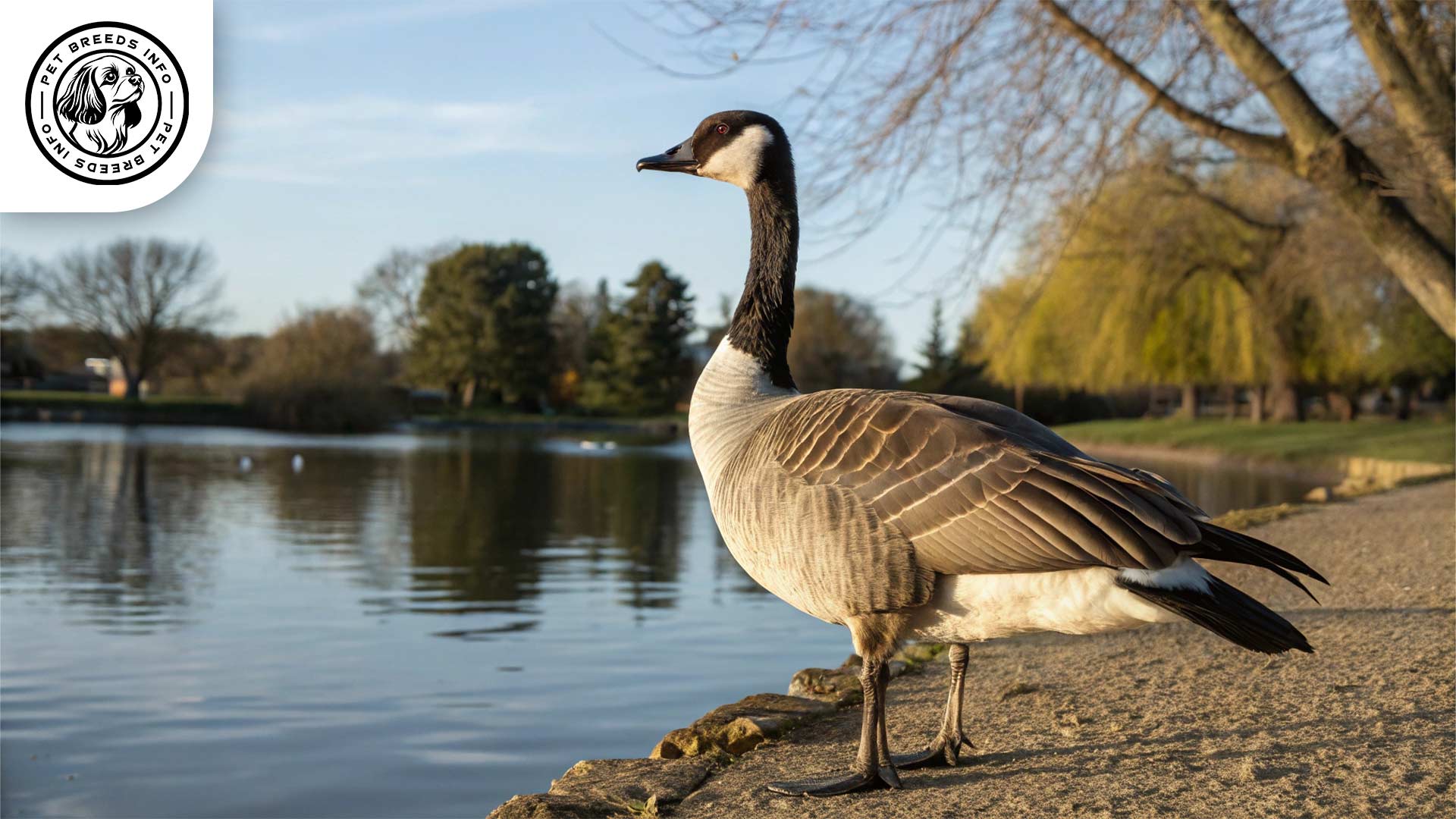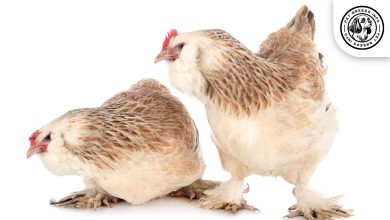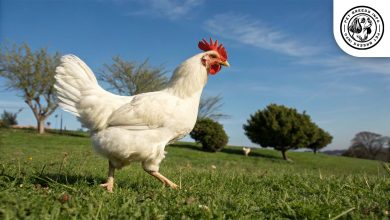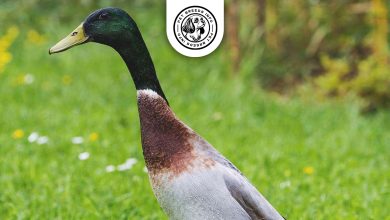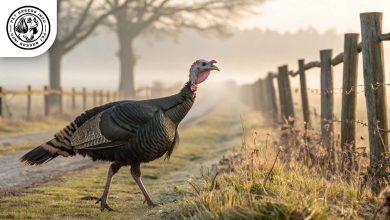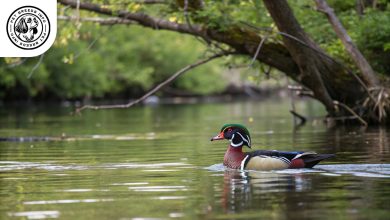Canadian Goose Breed: Personality, Lifespan, Food & Care
General Introduction of the Breed
The Canadian Goose (Branta canadensis) is well known for its wild populations, but domesticated varieties have been selectively bred for farming, companionship, or ornamental purposes. These domesticated geese are primarily found in North America, where they have been maintained for their meat, feathers, and sometimes as pets or guardians for properties.
While wild Canada geese are migratory, domesticated varieties have been bred to adapt to more predictable environments, often losing their instinct to migrate.
Table of Contents
| Common Name | Domestic Canadian Goose |
| Scientific Name | Branta canadensis |
| Origin | North America |
| Size | 2–3 ft tall; 9–14 lbs |
| Lifespan | 10–25 years |
| Colors | Black head/neck with white chinstrap; gray-brown body |
| Talking Ability | None |
| Noise Level | High, especially when alert or guarding |
| Social Behavior | Protective, bonded with owners, may be territorial during breeding |
Physical Characteristics
Domesticated Canadian Geese typically reach a height of about 2–3 feet (60–90 cm) and can weigh between 9–14 pounds (4–6.5 kg), with males generally being larger than females.
They have a characteristic black head and neck with a distinctive white chinstrap marking. Their bodies are covered in gray and brown feathers, which provide excellent camouflage in natural surroundings.
Their eyes are dark brown to black, round, and alert. The beak is black and sturdy, adapted for grazing on plants.
Their tails are relatively short, and they have strong, webbed feet, which make them excellent swimmers.
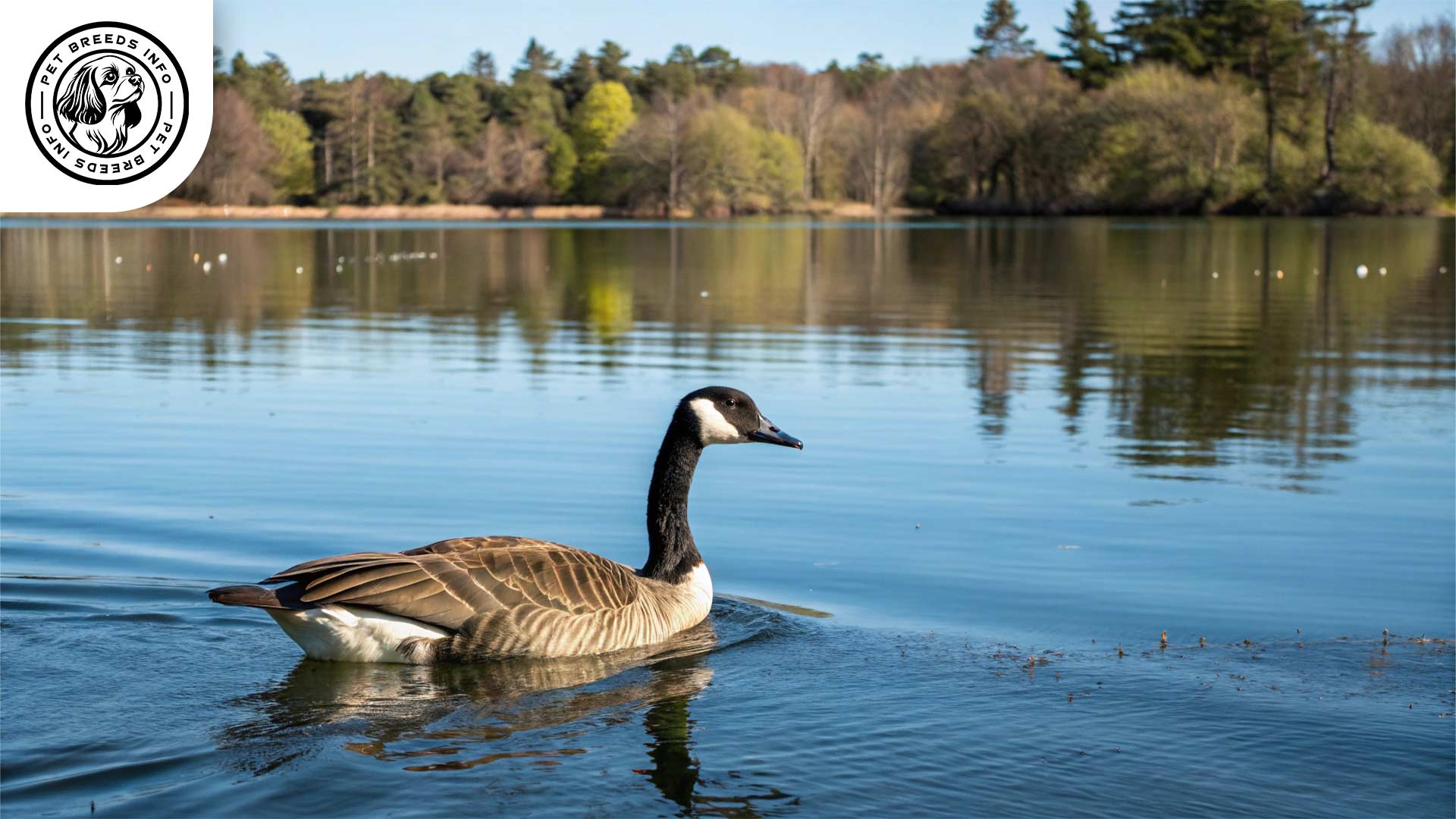
Personality and Temperament
Domestic Canadian Geese are highly intelligent and capable of recognizing humans and forming bonds with their caretakers.
They are moderately active birds that enjoy foraging and swimming. They require sufficient space to roam but can become territorial, especially during the breeding season.
These geese can be affectionate toward their owners, but they often retain some of their wild instincts, making them cautious and alert.
They are known to be protective of their flock and will emit loud honks when they sense danger, making them useful as property guardians.
Care and Maintenance Requirements
Domestic Canadian Geese require a large outdoor space with access to water, such as a pond or a kiddie pool, for optimal health and happiness.
They should have a secure shelter to protect them from predators at night.
Grooming needs are minimal as they naturally preen their feathers. However, they do molt seasonally, during which time they may require additional nutritional support.
These birds are highly adaptable to cold weather thanks to their insulated feathers, but they should be provided with shady areas during extreme heat.
Basic hygiene includes ensuring clean water, safe grazing areas, and occasional trimming of overgrown nails if they do not naturally wear down.
Diet and Nutrition
The primary diet of a domestic Canadian Goose includes grass, grains, leafy greens, and specialized waterfowl feed.
They also enjoy vegetables such as peas and lettuce but should avoid processed or salty foods.
Foods to avoid include chocolate, avocados, onions, and anything excessively sugary.
Read More: Egyptian Goose
Portion sizes will depend on the availability of grazing material, but providing fresh feed daily is essential.
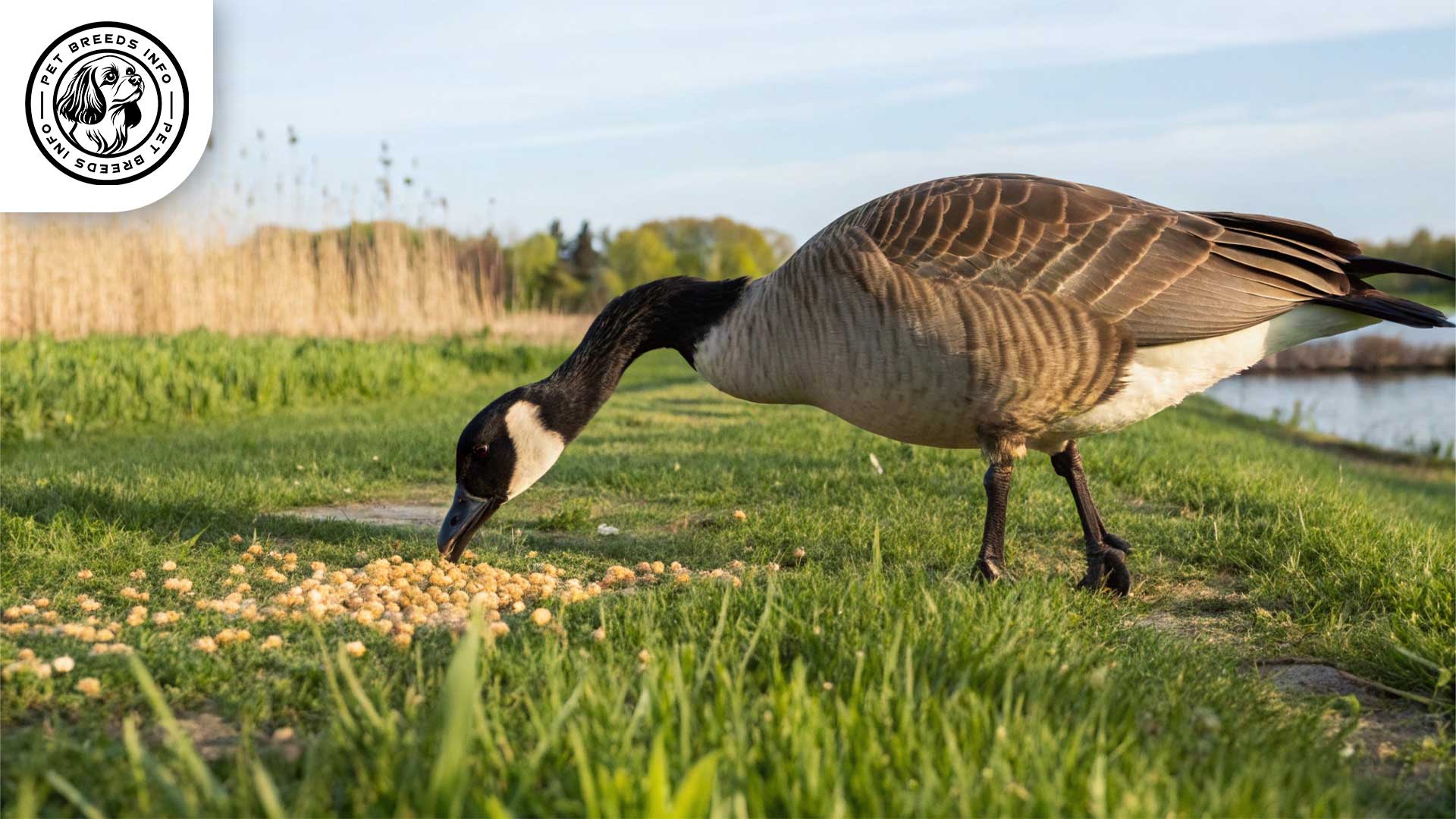
Health and Common Medical Issues
Domesticated Canadian Geese are generally hardy birds but can be susceptible to respiratory infections, parasites, and nutritional deficiencies.
Angel Wing Syndrome, a condition caused by improper nutrition, can occur if they consume too many processed grains during their rapid growth phase.
They typically live between 10–25 years, depending on care and environmental factors.
Regular health checkups are recommended, especially for geese raised in confinement.
Training and Behavior Management
While not as trainable as dogs or parrots, Canadian Geese can learn to recognize routines and respond to certain calls or feeding times.
They can be trained to follow their caretakers with positive reinforcement such as treats and gentle vocal commands.
Read More: Rhode Island Red Chicken
Early exposure to human interaction helps in making them more sociable and less prone to aggression.
Interaction with Other Animals and Humans
Domestic Canadian Geese can get along with other livestock and farm animals but may become territorial during the breeding season.
They can form strong bonds with their owners but may be wary of strangers.
They are best suited for farmsteads, large properties, or rural areas rather than urban or small backyard settings.
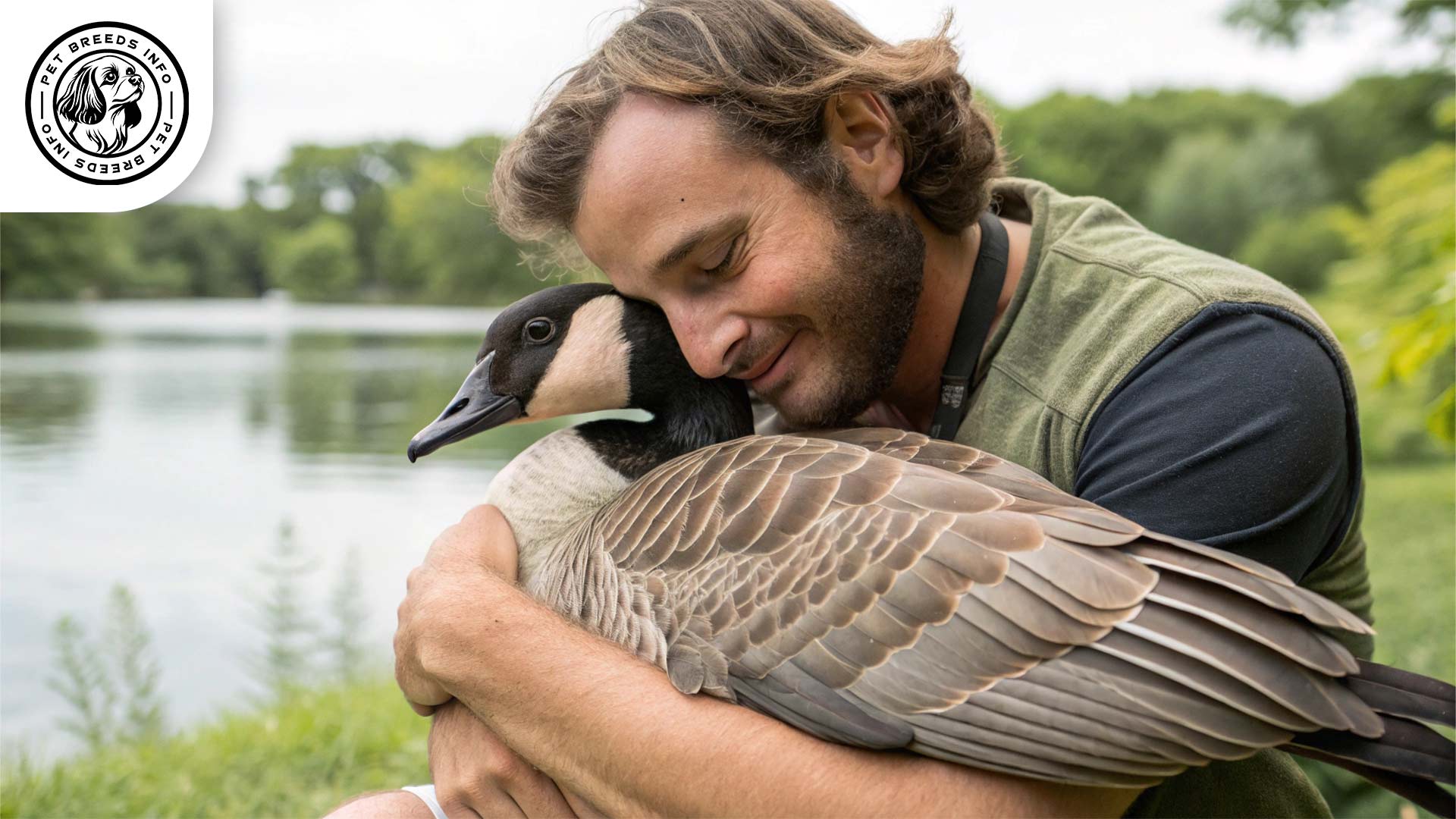
Price and Availability
Domestic Canadian Geese are not as common as other domestic goose breeds, but they can be found through specialty breeders.
The cost can range from $30–$100 per goose, depending on age and breeding stock.
Potential owners should ensure they are legally allowed to keep Canada Geese in their area, as some regions classify them as protected wildlife.
Conclusion and Final Thoughts
Domestic Canadian Geese make excellent outdoor companions and guardians for large properties. They require space, water access, and proper shelter.
They thrive best in farm environments where they can graze freely and interact with other birds.
Read More: Langshan Chicken
Potential owners should consider their long lifespan and need for adequate care before committing to raising them.
FAQ
Can Canadian Geese be kept as pets?
Yes, domestic varieties can be kept as pets, but they need ample outdoor space and water access.
Are domestic Canadian Geese aggressive?
They are generally friendly with caretakers but may become territorial, especially in breeding season.
What do domestic Canadian Geese eat?
Their diet includes grass, grains, leafy greens, vegetables, and waterfowl feed. Avoid processed or salty foods.
How long do domestic Canadian Geese live?
With proper care, they can live anywhere from 10 to 25 years.
